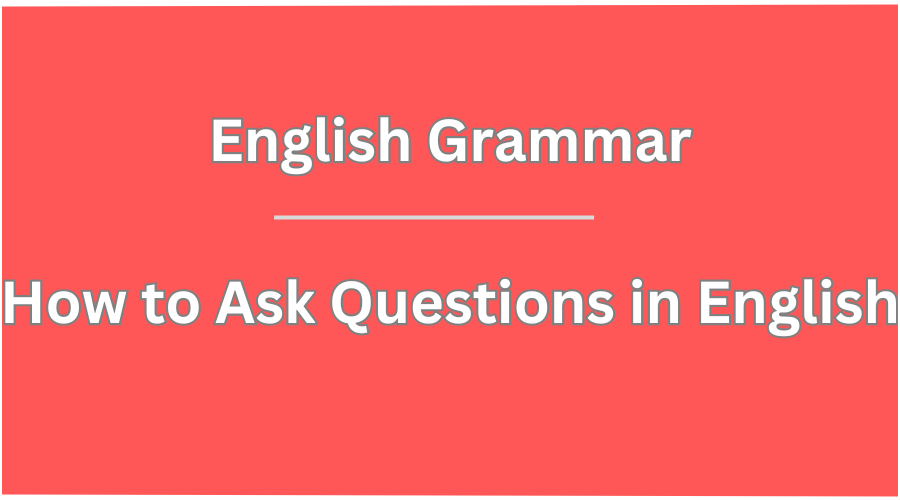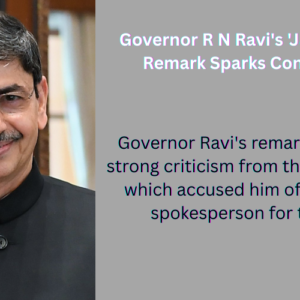There are several types of question forms in English. To learn all those forms, continue reading.
I. One type of question form is the yes-or-no question. The answer to these questions will be either “yes” or “no.” You can also use “maybe,” “I don’t know,” “possibly,” etc.
The general form of Yes or No question is the following: [Model Verb or Auxiliary] + [Subject] + [Main Verb] + [Object or Additional Information]?
- Do you like ice cream?
Ans. [Yes, I do] or [No, I don’t]
- Do you like Chicken?
Ans. [Yes, I do] or [No, I don’t]
- Are you going to the party?
Ans. [Yes, I am] or [No, I’m not]
- Are you going to the concert?”
Ans. [Yes, I am] or [No, I’m not]
- Can you open this bottle?
Ans. [Yes, I can] or [No, I can’t]
- Can you open this jar?
Ans. [Yes, I can] or [No, I can’t]
- Did you do your work?
Ans. [Yes, I did] or [No, I didn’t]
- Did you complete your assignment?
Ans. [Yes, I did] or [No, I didn’t]
- Have you been to India?
Ans. [Yes, I have] or [No, I haven’t]
- Have you visited Brazil?
Ans. [Yes, I have] or [No, I haven’t]
II. The format of yes-or-no questions changes when some forms of ‘to be’ serve as the main verb. The format looks like this: [To Be] + [Subject] + [Adjective]
- Are you happy?
Ans. [Yes, I am] or [No, I’m not]
- Are you sad?
Ans. [Yes, I am] or [No, I’m not]
- Is everything fine?
Ans. [Yes, everything is fine] or [No, everything is not fine]
- Is everything satisfactory?
Ans. [Yes, everything is satisfactory] or [No, everything is not satisfactory]
- Are they exhausted?
Ans. [Yes, they are tired] or [No, they are not tired]
- Are they energetic?
Ans. [Yes, they are energetic] or [No, they are not energetic]
III. Negative Yes/No Questions are less common due to their awkward sound and tendency to elicit similar responses. When presented negatively, these questions often convey skepticism or imply that the questioner already anticipates the answer. The following examples illustrate this idea:
- Don’t you like Pepsi?
Ans. [No, I don’t] or [Yes, I do]
- Don’t you like Coca Cola?
Ans. [No, I don’t] or [Yes, I do]
- Haven’t you visited this location before?
Ans. [No, I haven’t been here before] or [Yes, I have been here before]
- Haven’t you tried this dish before?
Ans. [No, I haven’t tried this dish before] or [Yes, I have tried this dish before]
- Can’t he solve the problem independently?
Ans. [No, he can’t] or [Yes, he can]
- Can’t you finish the assignment before the deadline?
Ans. [No, I can’t] or [Yes, I can]
- Wouldn’t you rather take a break now?
Ans. [No, I wouldn’t] or [Yes, I would]
- Wouldn’t they consider a different approach for the project?
Ans. [No, they wouldn’t] or [Yes, they would]
IV. Wh-Questions
Wh- questions are different from simple yes-or-no questions. These types of questions can be answered in more than two ways. Such questions begin with any one of the following:
*Who *When *Where *What *Why *Whose *Which *How
The usual format of these questions: Wh + Modal Verb or Auxiliary + Subject + Verb + Object or Additional Information?
- Who is coming to the party tonight?
Ans: My cousin and a few colleagues from work are coming to the party tonight.
- Question: Who did you meet at the park yesterday?
Ans: I met my neighbor and her adorable dog at the park yesterday.
- What are you reading at the moment?
Ans: I’m reading a mystery novel.
- Question: What did you cook for dinner?
Sample Answer: I cooked spaghetti with homemade marinara sauce.
- When did you start learning to play the guitar?
Ans: I started learning to play the guitar two years ago.
- When is the deadline for submitting the project?
Ans: The deadline for submitting the project is next Friday.
- Where do you usually go for your summer vacations?
Ans: I usually go to the beach for my summer vacations.
- Where did you find that interesting book you were talking about?
Ans: I found that book at a local bookstore downtown.
- Why did you pick that particular restaurant for the celebration?
Ans: I chose that restaurant because it has a diverse menu, and the ambiance is perfect for a celebration.
- Why did she decide to pursue a career in computer programming?
Ans: She decided to pursue a career in computer programming because she enjoys solving complex problems and has a passion for technology.
- How did you learn to play the guitar so proficiently?
Ans: I learned to play the guitar proficiently by taking lessons from a skilled instructor and practicing consistently for several years.
- How did you manage to complete the project ahead of schedule?
Ans: I managed to complete the project ahead of schedule by prioritizing tasks and working closely with the team to streamline the process.
V. Another type of question involves the use of “what,” “which,” “who,” or “whose” as the subject.
- What lies hidden behind the bookshelf?
Ans. A long-lost toy and a collection of dust bunnies are hidden behind the bookshelf.
- What inspired the creation of the new art installation in the park?
Ans. The artist’s recent travels and cultural experiences inspired the creation of the new art installation in the park.
- Who enjoys hiking in the mountains?
Ans. John enjoys hiking in the mountains!
- Who has a passion for photography?
Ans. Sara has a passion for photography!
- Who finished all the cookies in the jar?
Ans. Sarah finished all the cookies in the jar.
- Who is the captain of the soccer team?
Ans. James is the captain of the soccer team.
- Which movie won the Best Picture award at the Oscars?
Ans. “The Shape of Water” won the Best Picture award at the Oscars.
- Which chair needs repair?
Ans. The dining room chair needs repair.
- Whose backpack is on the kitchen table?
Ans. The backpack on the kitchen table belongs to Sarah.
- Whose car is parked in the driveway?
Ans. The car parked in the driveway belongs to my neighbor, Mr. Johnson.
VI. Wh- Negative Questions: Negative wh-questions can be helpful in conversations in many ways.
Wh-word + Negation of Auxiliary or Modal Verb + Subject + Verb + Object or Additional Information?
1. Who didn’t complete their homework?
Ans. Emily didn’t complete her homework.
2. Who hasn’t tried the new restaurant in town?
Ans. Sarah hasn’t tried the new restaurant in town.
3. What can’t you find in your backpack?
Ans. I can’t find my pen in my backpack.
4. Where haven’t they explored in the city?
Ans. They haven’t explored the old town in the city.
5. Who won’t participate in the talent show?
Ans. Tom won’t participate in the talent show.
6. Why shouldn’t we choose the red paint?
Ans. We shouldn’t choose the red paint because it clashes with the furniture.
7. How can’t you solve the puzzle?
Ans. I can’t solve the puzzle without the missing piece.
8. What didn’t you buy at the grocery store?
Ans. I didn’t buy bread at the grocery store.
9. Where didn’t they go for vacation?
Ans. They didn’t go to the beach for vacation.
10. Who didn’t attend the party last night?
Ans. Emily didn’t attend the party last night.
11. Why didn’t the team win the game?
Ans. The team didn’t win the game because they made too many mistakes
VII. Tag Questions.
These inquiries are typically appended to the end of a statement, serving to affirm the accuracy or validity of the information presented.
Question tags serve as a common linguistic tool, particularly in spoken communication rather than written expression.
In instances where the initial statement is positive, a negative question tag is employed to construct these linguistic structures.
Example: He is a teacher, isn’t he?
In instances where the initial statement is negative, a positive question tag is employed to construct these linguistic structures.
Example: She is not here, is she?
If we are sure that the listener is going to agree with your statement, we will use the question tag with a falling intonation. If we are not sure about it, we will use the question tag with a rising intonation.
Formation:
We use auxiliary verb to form the question tag.
Here are the corrected sentences:
- I don’t need to do it, do I?
- Sara is repairing it, isn’t she?
- Your brother has gone to the US, hasn’t he?
- The alarm did not sound, did it?
- She was happy that day, wasn’t she?
- It was drizzling that day, wasn’t it?
- Your father had gone to Dubai, hadn’t he?
Sometimes, when the verb is in the past simple or present simple tense and there is no auxiliary verb in the statement, we use don’t, doesn’t, or didn’t.”
- Advik likes ice cream, doesn’t he?
- He said that first, didn’t he?
When the main verb is ‘to be’ in either the present simple or past simple tense, the appropriate auxiliary verb for forming the question tag is also ‘to be.’
- The petrol pump is over there, isn’t it?
- Nobody in the office is happy, are they?
When the main verb is a modal verb, the question tag is formed using the same modal verb.
- They couldn’t hurt me, could they?
- You will not go to London, will you?
When the main verb or auxiliary verb is ‘am,’ the positive question tag is ‘am I?’ However, the negative question tag is typically ‘aren’t I?’
- I am a smart person, am I?
- I am going to get a fruit salad with ice cream, aren’t I?
VIII. Ask questions using would you, could you, will you and can you
1. Would you…?
2. Could you…?
3. Will you…?
4. Can you…?
We can use modal verbs to show ability, ask for permission, and request assistance. Many modal verbs have more than one meaning.
We can use ‘Would you’ and ‘Could you’ + the simple verb to ask questions politely
1. Would you please tell me about your favorite activity to relax after a long day?
2. Would you please share a recipe that you enjoy preparing for a quick and delicious meal?
Examples questions with would you
1. Would you please pass me the salt?
2. Would you please remind me to call John later?
Questions with could you please
1. Could you please help me with carrying these bags?
2. Could you please send me the document again?
Questions with could you
1. Could you pass me the remote control?
2. Could you pick up some groceries on your way home?
To ask a question in a more casual way, use ‘Will you’ and ‘Can you’ + the simple verb + …?
Questions with will you?
1. Will you please join us for dinner tonight?
2. Will you help me with the presentation tomorrow?
Questions with can you?
1. Can you pick up some milk on your way home?
2. Can you check if the windows are closed before leaving?
Possible positive answers to the questions above:
Yes. Yes certainly.
Certainly. Yes, of course.
Of course. I’d be happy to.
I’d be glad to.
My pleasure.
Informally, we can say:
Sure.
Okay.
To answer negatively, we say:
No.
Sorry.
Sorry, I can’t. I’m busy right now.
IX. Do you mind? & Would you mind?
To politely request that someone perform a task, you can use “Do you mind + ing” or the more polite and common “Would you mind + ing.”
For example:
1. Do you mind closing the door behind you?
2. Would you mind proofreading this document for me?
3. Do you mind passing me the salt, please?
4. Would you mind helping with the preparations for the event?
To politely seek permission, one can use either “Do you mind if I + present” or the more formal and common “Would you mind if I + past.”
For example:
1. Do you mind if I borrow your pen for a moment?
2. Would you mind if I took a quick break to make a phone call?
3. Do you mind if I use your computer briefly?
4. Would you mind if I brought a friend to the event?
In these instances, both phrases serve as polite ways to request permission, with “Would you mind if I” carrying a slightly more formal tone.
When someone seeks permission, it is common to respond with “no,” which means “I don’t mind” or “I’m happy with that.” Conversely, if we wish to convey that we are not content with the request, we typically begin our response with “I’m afraid…”.
1. Do you mind if I turn up the music a bit?
Ans. No, not at all. (You can turn up the music – I don’t mind)
2. Would you mind if we changed the meeting time to 3 PM?
Ans. No problem. (You can change the time – I don’t mind)
3. Do you mind if I bring my friend along?
Ans. Certainly not. (You can bring your friend – I don’t mind)
4. Would you mind if I left a little early today?
Ans. Sure, go ahead. (You can leave early – I don’t mind)
5. Do you mind if I take the last piece of cake?
Ans. I’m afraid I was saving that for later.
X. Indirect Yes or No Questions
Formulate indirect yes/no questions by integrating the word “if” with a positive statement.
Examples:
1. Direct Question: Is he going to the party?
Indirect Question: Could you inform me if he is going to the party?
2. Direct Question: Have they finished the project?
Indirect Question: Could you let me know if they have finished the project?
3. Direct Question: Did you enjoy the movie?
Indirect Question: Can you tell me if you enjoyed the movie?
4. Direct Question: Does she speak Spanish fluently?
Indirect Question: Could you inform me if she speaks Spanish fluently?
5. Direct Question: Is it going to rain tomorrow?
Indirect Question: Can you tell me if it is going to rain tomorrow?
6. Direct Question: Have you met the new manager?
Indirect Question: Could you let me know if you have met the new manager?
7. Direct Question: Will they attend the conference?
Indirect Question: Can you inform me if they will attend the conference?
XI. Indirect Wh- Questions
Examples:
1. Direct Question: Whose car is parked in front of the house?
Indirect Question: Can you tell me whose car is parked in front of the house?
2. Direct Question: How much does this laptop cost?
Indirect Question: Could you inform me how much this laptop costs?
3. Direct Question: When did they start the construction?
Indirect Question: Can you tell me when they started the construction?
4. Direct Question: Where did you find that interesting book?
Indirect Question: Do you know where you found that interesting book?
5. Direct Question: Why is the meeting rescheduled?
Indirect Question: Could you tell me why the meeting is rescheduled?
6. Direct Question: How did they solve the problem?
Indirect Question: Can you inform me how they solved the problem?
7. Direct Question: Which team won the championship?
Indirect Question: Do you know which team won the championship?
News in Same Category
 Auxiliary Verbs
Auxiliary Verbs
 Transitive and Intransitive Verbs
Transitive and Intransitive Verbs
 Ask Questions Using Would You, Could You, Will You and Can You
Ask Questions Using Would You, Could You, Will You and Can You
 Using ‘mind’ as a verb to instruct someone to be careful or take care of something
Using ‘mind’ as a verb to instruct someone to be careful or take care of something
 The term ‘mind’ to denote the act of taking care of someone or something
The term ‘mind’ to denote the act of taking care of someone or something
 He doesn’t mind, She doesn’t mind, I don’t mind
He doesn’t mind, She doesn’t mind, I don’t mind
 The Phrase “Never Mind”
The Phrase “Never Mind”
 Uses of ‘Mind’ as a Noun
Uses of ‘Mind’ as a Noun
 Uses of ‘Being’
Uses of ‘Being’
 ‘In a Nutshell’: Summarizing Complex Ideas Concisely
‘In a Nutshell’: Summarizing Complex Ideas Concisely
 Difference Between Phrase and Clause
Difference Between Phrase and Clause
 Either… or…
Either… or…
 Rather, Rather than, Rather a lot, Or rather
Rather, Rather than, Rather a lot, Or rather














































